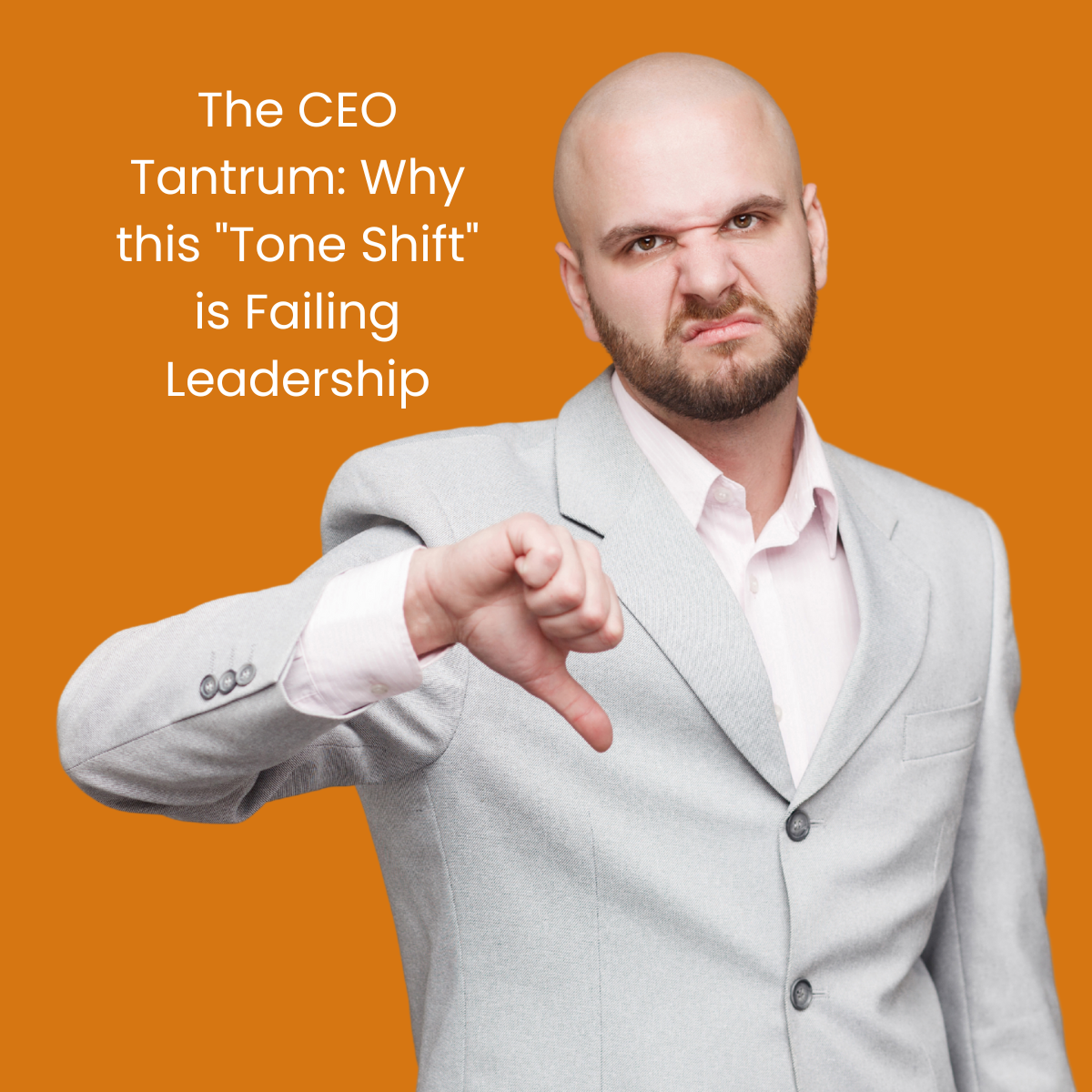The CEO Tantrum: Why this “Tone Shift” is Failing Leadership

On May 19, LinkedIn’s “The Insider” posed a question sparked by a Wall Street Journal article that highlighted the growing tension between executives and managers.
The WSJ piece referenced Skims co-founder and CEO Emma Grede’s infamous “work-life balance is your problem” quote from last week’s issue. It also called out JPMorgan CEO Jamie Dimon’s apparent frustration with return-to-work mandates, where he declared, “I’ve had it with this kind of stuff… I’ve been working seven days a week since Covid, and I come in, and—where is everybody else?”
The WSJ labels these executive statements a “tone shift” in corporate America. This brings us to LinkedIn’s prompt: How will this tonal shift affect employee morale, engagement, and trust in leadership?
With this being an editorial, I’ll be blunt.
“Tone shift” is too soft of a phrase and we cannot continue to acquiesce to every bad example. We need to collectively be honest with executives about what they’re doing, and we need to draw the line somewhere. At some point, people must be held accountable for both their words and their deeds. What we’re seeing is unprofessional, to put it nicely.
ac·qui·esce – verb. To accept something reluctantly, but without protest.
– Oxford’s English dictionaries
When this is the attitude of top leaders, no one is driving the bus. Executives are managing by intimidation, and their companies are an absolute internal mess. Employee trust in leadership has all but evaporated, and engagement is, at best, a polite facade.
The behaviors described here make the workplace sound like a corporate preschool with no time outs, complete with speaking out of turn, not controlling our “inside voices,” and stomping around to intimidate others to get our way. These are behaviors we should have learned to avoid before kindergarten.
I understand not every company is displaying these behaviors, and the issues we’re hearing about are largely at huge companies. The current political climate might be influencing some of these behaviors, and it is hard to avoid. But there are no winners in this scenario, as we either work for these companies or interact with them as customers, partners, vendors, or some other role.
It may not come in the form of profit losses, but reputational damage can be more difficult to overcome. I can only hope some of these executives have wise advisors who will encourage them to shift gears before they run their companies into the ground.
Here’s some fundamental feedback these leaders desperately need to internalize:
- Leaders must model the behavior and culture they expect. Aiming for “toddler-level” is a catastrophic miss.
- As Emma Grede noted, work-life balance is an individual’s problem. So why is the CEO of JPMorgan whining about it to his staff? This not just unprofessional; it also indicates he’s not managing his work-life balance effectively. Lashing out at employees is never a healthy solution. Items 1 and 2 on this list feel like an infinite loop with a handful of companies constantly in the news on both topics.
- There are pressing, real-world issues on the horizon—the economy, tariffs, global instability. Focusing on proactively mitigating those significant risks seems infinitely more productive than obsessing over whether employees are physically present at their desks.
That’s as far as I’ll go on the prompt. Do better, CEOs. Do better.
.
.
.
This editorial originally ran in the May 20, 2025 issue of Unscripted Strategy. Subscribe below to receive relevant business commentary, best practices, lessons learned, and more every Tuesday.
